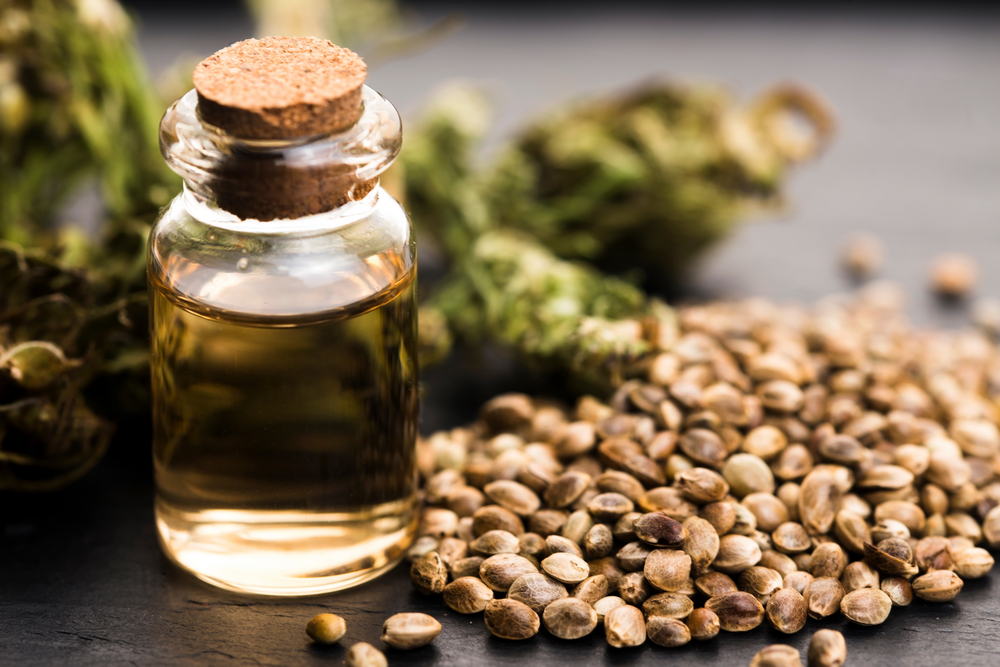
Utah voters approved Proposition 2 to legalize Medical Cannabis in 2018. Our program was set in motion the following year. Since 2019, the number of Medical Cannabis users in Utah has continued to climb. So have the number of Qualified Medical Providers (QMPs). Overall, though, has cannabis consumption changed significantly in the last few years?
We know it has changed here in Utah simply because our program continues to evolve as lawmakers and regulators make adjustments. It would be curious to see how much evolution has taken place outside of the Beehive State. Common sense seems to dictate a lot of changes, but no one can say for sure without hard data.
Back in 2021, The Cannigma conducted their own survey designed to help them understand how recreational users saw themselves in relation to broader public opinion and policy. We will not get into all the details here. However, we are interested in what the survey revealed about Medical Cannabis.
The survey pulled in results from 204 female users and 162 male users. That gives us a total of 366 respondents. Of that number, 65% said they used cannabis as a substitute for other prescription medications. That in itself is rather interesting. Knowing what we know about chronic pain being the number one qualifying condition among Medical Cannabis users, we can speculate about the prescription medications users are hoping to avoid.
We also find it fascinating that 72% of the females reported using Medical Cannabis instead of prescription drugs while only 55.5% of the males reported the same thing. The disparity deserves a bit more investigation. Maybe future research will look into it.
One last thing we wanted to touch on is the fact that the survey revealed medical users reported more frequent cannabis consumption. Medical Cannabis users are more likely to use multiple times per day and on more days per week. No surprises there.
By its nature, Medical Cannabis is used a lot like most other prescription medications. Since its effects tend to wear off after a few hours, patients often consume cannabis multiple times per day. We expect, for most patients, this pattern of consumption to be consistent throughout any given week.
The one thing that makes this interesting is the fact that, when all is said and done, actual cannabis consumption is left to patients. Medical providers make recommendations. They offer sound advice. But when it comes time to actually medicate, individual patients determine delivery method, dosage, and frequency. Yet even without a written prescription with formal instructions printed on a label, patients still use Medical Cannabis like any other prescription medication.
Though we haven't seen any sort of follow-up survey similar to the Cannigma survey from 2021, there is no reason to believe that Medical Cannabis users are doing things any differently in 2023. We think it's safe to assume that patients still use their medicines on a daily basis, and probably multiple times per day.
What may have changed over the last two years is this percentage of consumers who use Medical Cannabis in lieu of prescription medications. We suspect that number might be higher, though we don't have any clear data to prove it.
As things in the Medical Cannabis space continue to evolve, both medical providers and patients continue to learn. Most of what we learn is fresh and exciting. It is information that helps us all make better use of Medical Cannabis to improve health, wellbeing, and quality of life.
How can you find high-quality cannabis products in an unregulated market? How do you make sure that they are safe, effective, and meet your expectations?
People ask me about this all the time and, unfortunately, there is not a simple answer. The reality is, in an unregulated market there are a lot of unsophisticated producers who are making all kinds of products simply to make money. These producers probably care very little about whether their product is healthy or not.
It would be the same as if somebody were making bathroom gin, or breakfast cereal in their basement, or something along those lines. It may taste fine, it may even give you some of the qualities of the thing you're looking for, but you don't really know what went into making it. These are some general rules of thumb to look for.

All products should have a certificate of analysis (COA). Even if you buy cannabis on the black market, you should still want some kind of testing on the product. If you’re using an untested cannabis product, how can you be sure it’s free of pesticides that cause cancer? If somebody says they don't have to use any intervention at all to produce a perfect product, that's a lie.
Reputable producers of high-quality cannabis will always have COAs available for each of their products. You can often find COAs via a web address or QR code on their packaging. If a cannabis producer doesn't have COAs readily available, you might want to buy a different brand.
Certificates of analysis often have complicated, detailed information about the products they represent. Different states have different regulations for testing cannabis, and some are much more stringent than others.
So, what are some of the things to look for in a COA? First, look for a section that lists the cannabinoids. We typically find anywhere between 12 and 16 different cannabinoids in a plant. These include THC, CBC, CBDA, CBDV, THCV, CBL, CBT, CBE, etc. Does the COA list all the cannabinoids found in the test, even if they only show up in trace amounts?
Non-naturally occurring cannabinoids, like Delta-6-THC and Delta-10-THC, indicate the product contains cannabinoids created in a lab, through a synthetic process. Synthetic cannabinoids and the methods used to make them have not been thoroughly tested.
None of them have any data to suggest that they're good. They may not have data to suggest they're bad, but that's a real significant risk if you're putting your health on the line. So, I recommend avoiding products with cannabinoids that are not naturally occurring.
The second thing to look for is where the flower came from. If you're using a product that was derived from flower, the manufacturer’s COA should say what was in the flower. The COA should also have information on where the flower came from.
If the cannabinoids in your product do not match the cannabinoids that were found in the flower, that's a big warning sign. That means they either have an uncontrolled process, the product actually did not come from the stated location, or they created things synthetically in their process. That's a red flag.

The third thing to look for is the total concentrations of the product. For CBD products, you typically need at least 25 milligrams to be an efficacious dose for an average person. So, I recommend checking the bottle for the amount of CBD and other cannabinoids per serving. If I buy a bottle and the total amount of CBD in the entire bottle is 300-600 milligrams, chances are there’s not enough cannabinoids to actually have an effect.
Next, consider the effects that you expect to get from the cannabis product you’re buying. If I'm trying to have a head change and the product contains no THC, then it will not give me that desired effect. Similarly, if I'm really looking to lower inflammation and the product does not contain any CBG, it is unlikely to produce the effect that I'm looking for.
High-quality cannabis comes from sources that are transparent about their processes, their COAs, and everything about their production. In general, we can expect good products from cannabis producers who are transparent about their production methods.
If they’re willing to show you how their products are made, it’s a good sign that they have nothing to hide. If everything is a trade secret or hidden, that is also probably a warning sign that they do not have full control of their process.
You might be wondering: how do I know what every cannabinoid does? Which ones are natural, which ones are not, and which ones are right for me? I recommend taking the time to learn about common cannabinoids and the effects they can produce. Once you've done that, cannabis COAs will begin to make a lot more sense.
There are a lot of different sources of information on cannabinoids and their different effects. You can learn about them in books about Medical Cannabis, peer-reviewed studies, and other sources backed by scientific research. This website is a good source of information, and so is the Discover Marijuana YouTube channel.
Zion Medicinal CEO Blake Smith is giving you an insider’s perspective about Medical Cannabis in this limited feature series, “Between Two Herbs.” Keep an eye out for Blake’s next piece.

One of the benefits of state-legal Medical Cannabis is all the anecdotal evidence cited by people who come to the realization that cannabis helps them feel better in ways that were never intended. As a result of this evidence, we hear all sorts of questions about what the drug can and cannot be used to treat. Let’s consider menopause night sweats, for example.
A 2020 survey conducted by the North American Menopause Society (NAMS) seems to suggest that women are using cannabis to self-treat the symptoms of menopause. The study surveyed 232 California women between the ages of 45 and 64 who had enrolled in VA plans in the Golden State.
More on that study in just a minute. First though, it is important to note that we don't have any comprehensive clinical studies on this particular topic. In fact, we have very little study data on anything relating to menopause symptoms and the endocannabinoid system.
What we do know is that the endocannabinoid system is a multi-functional system. It directly regulates, or indirectly helps to regulate, a long list of biological functions. It is believed that the endocannabinoid system does play a role in regulating a person's internal thermostat.
If that is truly the case, it would stand to reason that night sweats caused by menopause could be controlled through some sort of endocannabinoid manipulation. But right now, that's just a theory. Like so many other potential treatment areas, using Medical Cannabis to treat menopause hot flashes needs a lot more study.
Getting back to the previously mentioned study, more than half of the women surveyed reported menopausal symptoms they found bothersome. They mentioned hot flashes and night sweats at a rate of 54%. In addition, 27% complained of insomnia and 69% complained of genitourinary problems.
When asked how they treated their menopause symptoms, 27% reported having used cannabis at one time or another. Survey participants were not asked how frequently they used cannabis or the amount they used.
More interesting was the fact that only 19% reported using traditional menopause therapies. Hormone therapy immediately comes to mind. Yet 10% reported an interest in giving cannabis a try at some point in the future. This tells us something particularly important.
What it tells us is that traditional menopause therapies do not always work. But that's no different from any other medical therapy. Medical science develops therapies to treat all sorts of diseases, maladies, and conditions. But every medical professional knows that people respond differently to those therapies. A single therapy doesn't work for every patient. No therapy is foolproof.
It is entirely possible that the majority of the women in the California study who reported treating with cannabis actually found relief in doing so. It's also possible that some found relief while others didn't. We just don't know.
Here in Utah, our list of qualifying conditions for Medical Cannabis is pretty straightforward. Most of the patients who apply for Medical Cannabis cards in our state list chronic pain as their chief complaint. But there are also patients who use Medical Cannabis to treat:
At this time, we do not have enough data to say one way or the other if Medical Cannabis would be an appropriate treatment for menopause night sweats. One day we may have that answer. For now, though, we encourage you to discuss your health with a medical provider if you believe you qualify for a Medical Cannabis card in Utah.
Harvard Health Publishing ran a piece in early December 2022 from Julie Corliss, the executive editor of Harvard Heart Letter. The piece posed a question those of us in the Medical Cannabis community have been asking for quite some time: how does cannabis actually relieve pain? Research cited by Corliss suggests the answer may be in studying what is known as the placebo effect.
The research in question, though small-scale, demonstrated no notable difference in pain relief between Medical Cannabis and placebo. But rather than jumping to the conclusion that Medical Cannabis doesn't actually work, the research points to our understanding of the placebo effect and its effect on pain perception. The research suggests that cannabis may relieve pain through a similar mechanism.
You may be familiar with the placebo effect in principle. In essence, it is observed when people in clinical trials report positive results after receiving placebos – in contrast to a test group that was provided the real medication. The effect is explained as an effect of the mind. In other words, patients expect to feel better; their expectations become self-fulfilling.
We know the placebo effect is real. It has been demonstrated time and again. But is there anything physiological behind it? According to at least one of the experts interviewed by Corliss for her piece, there is. Ted Kaptchuk, of the Beth Israel Deaconess Medical Center, says the physiological mechanism is related to endocannabinoids.
Kaptchuk says that medical science has known since the 1970s that giving patients a placebo they are thoroughly convinced will work leads to the release of endocannabinoids in the brain. Remember that endocannabinoids are naturally occurring in human biology. They are very similar to the phytocannabinoids, such as CBD and THC, found in Medical Cannabis.
Although science is not clear as to what causes the release of endocannabinoids via the placebo effect, there is little doubt that the human endocannabinoid system helps regulate a variety of physiological functions. It influences appetite, memory, mood, cognition, and more. That's why cannabis consumption affects many of the same things.
Assuming the placebo effect releases endocannabinoids that are somehow related to pain regulation, patients who sincerely believe a given placebo will relieve their pain are likely to experience some measure of relief. Their sincere expectations contribute to the release of endocannabinoids which bind to pain receptors to provide relief.
Medical Cannabis' therapeutic benefits lie in the cannabinoids patients consume. Like naturally occurring endocannabinoids, Medical Cannabis cannabinoids bind to those same receptors throughout the body. Therein lies the pain relief. At least that's the theory. The research cited by Corliss seems to add significant weight to that theory.
If the theory is proved correct, it would ultimately lead to a very important question: if the placebo effect works, what would be the point of recommending Medical Cannabis as a pain treatment? The answer is as simple as understanding human expectations.
The placebo effect relies on a sincere expectation of relief. In other words, patients need to believe a medication will help for the placebo effect to kick in. If it doesn't kick in, those endocannabinoids don't get released. Where there is no endocannabinoid release, there is no pain relief.
On the other hand, consuming Medical Cannabis will introduce cannabinoids to the system by default. There is no guessing. There is no sincere expectation required. Medical Cannabis should provide pain relief irrespective of a patient's expectations. Of course, all of this is dependent on a correct understanding of how the endocannabinoid system regulates pain.
The FDA recently made waves by issuing new opioid guidelines. Although the new guidelines contain some significant changes, the FDA still recommends gradual tapering rather than pulling patients off opioid medications cold turkey. It is hard to argue against such recommendations. But it's time to go a step further to seriously consider opioid tapering in conjunction with Medical Cannabis use.
Gradual tapering from opioid medications constitutes sound medical science. We know how addictive opioid medications are. We also know the dangers of cold turkey withdrawal. We even have scientific data that indicates chronic pain patients actually feel better when successfully tapered from opioids. So with all that knowledge, it is time to start looking at Medical Cannabis as an alternative to opioids during the tapering process.
Here in Utah, chronic pain is one of the qualifying conditions for Medical Cannabis. Certain types of acute pain also qualify. It is a safe assumption that every other state with legal Medical Cannabis allows doctors to recommend it as a pain treatment. We say all that to say this: those who believe in the efficacy of Medical Cannabis generally agree that it helps patients find an acceptable level of relief from chronic and acute pain.
This should not be discounted in any discussions involving opioid reduction. If we are serious enough about tackling the opioid issue to encourage clinicians to look at alternate treatments, one of those alternate treatments ought to be Medical Cannabis.
As far as opioid tapering is concerned, it is often done in conjunction with substitute medications that still offer patients pain relief. Why not recommend Medical Cannabis as a substitute medication? If it can help relieve pain while patients are slowly weaned from opioids, it seems senseless to not recommend it.
We previously mentioned study data indicating that patients actually feel better after completing a tapering program. Let's look more closely at that study. It was published in 2019, and it looked at more than 2,100 cases of patients who were prescribed opioid medications for chronic pain.
Each patient was tapered from opioids according to standard guidelines. At the conclusion of tapering, 81.25% reported improvement in their pain. Just 15% reported no change in how they felt. Finally, 3% reported more pain at the completion of tapering.
Looked at another way, 97% of the patients either felt better or noticed no difference in their pain levels following opioid tapering. Just 3% felt worse. The point is that patients can be successfully tapered without worsening their conditions. So there is no good reason to not do it.
Any and all patients who still need some measure of pain relief after opioid tapering should have access to as many choices as possible. For some, the best choice is going to be Medical Cannabis. Others will find pain relief through OTC medications, physical therapy, or other means.

As our knowledge of Medical Cannabis efficacy is expanding, people suffering from all sorts of conditions are beginning to ask whether it is right for them. One condition we hear a lot about is acid reflux. Patients want to know if cannabis can address the disease and, if not, at least relieve the pain. The simple answer is this: we don't know.
Cannabis has not been the subject of nearly as much study as so many other potential therapies. You know the reasons why. The good news is that research is starting to pick up. It is probably only a matter of time before scientists take a good look at Medical Cannabis as an acid reflux treatment for the disease, the pain it causes, or both.
There is reason to hope that Medical Cannabis may someday lead to a more effective treatment for acid reflux. Why? Because we do know that the endocannabinoid system regulates a whole host of biological functions ranging from appetite to metabolism and feelings of nausea. This is due to the presence of CB1 and CB2 receptors scattered throughout the body.
If you'd like more detailed information on this, check out a Cannigma article found here. In a nutshell, CB1 and CB2 cannabinoid receptors are found in every organ in the body. They are found throughout the digestive tract as well as the esophagus and stomach. The chances of them being there coincidentally are pretty slim. The fact that the receptors are found in these areas is compelling evidence that the endocannabinoid system regulates them at some level.
As the thinking goes, stimulating the endocannabinoid system with certain cannabinoids may lead to a reduction in acid production. Perhaps reduced inflammation and a more relaxed esophagus, both as the result of endocannabinoid manipulation, are also possible via Medical Cannabis.
The Cannigma cites three separate studies in support of Medical Cannabis as an acid reflux treatment. Two of the three were animal studies done in 2002 and 2009, respectively. A 2010 study conducted using human participants show promising results despite only 87 subjects being enrolled.
If you live in Utah and suffer from acid reflux, you need to know that the condition is not on the state's list of qualifying conditions for Medical Cannabis. In theory, you could probably still apply for a card based on your experience with chronic pain. But that would be up to you and your medical provider to discuss. We couldn't say one way or the other if Medical Cannabis would be the most appropriate treatment for you.
We do know that there are other acid reflux treatments out there. If they aren't working, you can always sit down with your medical provider and discuss other options. In the meantime, remember that any possibility of your doctor recommending Medical Cannabis would be rooted in a chronic pain diagnosis.
In closing this post, we want to remind readers that state law requires possession of a valid Medical Cannabis Card to consume cannabis products in Utah. Whether you want to use cannabis for chronic pain or some other condition, you first need to meet with a Qualified Medical Provider (QMP) or Limited Medical Provider (LMP) who can recommend cannabis to you.
If your own doctor will not act as your LMP, feel free to contact us to make an appointment with one of our QMPs. We are more than happy to sit down and discuss Medical Cannabis as an option for you.

Medicine can be delivered to the human body in any number of ways. More often than not, oral consumption is the preferred delivery method for Medical Cannabis. You simply swallow some pills or capsules and that's that. There are also aerosols to be inhaled and medications delivered through injections. Then there is the transdermal patch. It doesn't get a lot of play because it's not utilized as much as most of the other delivery methods.
The transdermal patch is a means of delivering medication through the skin. Here in Utah, transdermal delivery is legal within the Medical Cannabis realm. So it's theoretically possible that a manufacturer could produce a Medical Cannabis transdermal patch for pain, or some other qualifying condition.
A transdermal Medical Cannabis patch works the same as any other transdermal application. The explanation is found in the name. 'Transdermal' refers to the idea of transferring medication into the body through the skin. In terms of the transdermal patch, the patch is saturated with the medication in question. As it makes contact with the skin, the medication is transferred and then absorbed. It travels through the skin and into the underlying tissue.
Delivering medication through a transdermal patch is very similar to delivering it through a topical ointment. The big difference is that a patch maintains contact with the skin, thereby delivering more medication for a longer period of time. A transdermal patch gives you a lot more bang for your buck than a topical ointment or cream.
Transdermal applications are possible due to the skin's nature as an organ. In fact, the skin is the largest organ in the body. It is waterproof yet breathable. It is flexible but still strong. Finally, it has an uncanny ability to absorb all sorts of substances.
Medical science has known of the effectiveness of transdermal applications for quite some time. So much so that doctors have been recommending them for decades. Three of the most common uses are:
As effective as transdermal patches are, patients really shouldn't be careless with them. Preparation is key before applying a patch. Preparation starts with removing any other patches that contain the same medication. This is to prevent overdose. The second step is to clean the area where the patch will be applied and then wash the hands with soap and water.
Only after all the prep is completed is it appropriate to open the package and remove the transdermal patch. It is then applied directly to the skin. Adhesive on the patch keeps it in place.
It's a good idea with any type of transdermal patch to keep your doctor up to date on how it's working. The doctor should also be kept informed of any negative side effects you may experience. Of course, this applies to all transdermal patches.
If you are using a transdermal Medical Cannabis product, you'll be delivering THC to your body through your skin. Keep a record of how this works for you. Write down when you apply a patch, how it makes you feel, and any unpleasant side effects you experience. Give that information to your pharmacist next time you purchase Medical Cannabis. Every bit of information you can provide will help them offer you the best possible advice.
The transdermal patch has been an effective medicine delivery tool for years. Undoubtedly, some Medical Cannabis patients prefer it as their main delivery option.

Utah regulations require all patients wishing to use Medical Cannabis to have a valid Medical Cannabis card. Patients are not allowed to purchase cannabis products and give them to others, especially friends and family members who do not have valid cards themselves. Patients cannot even give cannabis to out-of-state visitors. But out-of-state visitors can apply for a non-Utah resident card.
Are you aware of the non-Utah resident Medical Cannabis Card? The card didn't exist back when our state first implemented its Medical Cannabis program. It was added after the fact, to make it easier for Medical Cannabis patients from other states to continue using their medications when they visit Utah.
A non-Utah resident card essentially gives out-of-state visitors temporary access to Medical Cannabis here. The process for obtaining a card is very similar to the process Utah residents complete. Requirements are virtually the same as well. The only significant difference is the duration of a non-resident card.
Let's say your family visits from Oklahoma. One of your family members has a valid card from Oklahoma. That card is not recognized in Utah, but your family member can apply for a non-Utah resident card. If granted, the card would give your family member the opportunity to use Medical Cannabis for up to 21 days of a single stay.
Non-residents can apply for cards twice per year. However, expiration dates are not extendable or negotiable. A non-Utah resident card is good for 21 days and that's it. Those 21 days are consecutive as well. A visitor could not use it for a week in July, then another in August, and a third in September.
In order to apply for a non-Utah resident Medical Cannabis Card, an out-of-state visitor must have a qualifying condition recognized by state regulations. The most commonly cited conditions in the Beehive State are chronic pain, PTSD, seizure disorders, and cancer. The out-of-state visitor must also possess a valid card from their home state.
The process for applying begins with a visit to the UtahID website where the visitor will create an account and furnish ID information. Once an ID account has been established, the visitor can log on to Utah's Electronic Verification System (EVS) to complete the non-Utah resident Medical Cannabis Card application.
Visitors are required to provide information about their medical conditions and existing cards. Once completed and submitted (along with the application fee), a visitor's application is reviewed by the DHHS before approval or denial. It can take up to three weeks for the DHHS to respond. Therefore, we suggest visitors apply at least a month before their arrival. They are required to pick a date on which the card becomes valid. It will expire 21 days later.
One final thing you should know is that the non-Utah resident Medical Cannabis Card does not give out of town visitors permission to bring cannabis into the state from elsewhere. Transporting Medical Cannabis across state lines is not allowed.
That means an out-of-state visitor with a valid non-resident card must purchase their medications from a state-licensed Medical Cannabis pharmacy. Visitors cannot take cannabis out of the state, either. So everything purchased here must be consumed here.
State lawmakers approved the non-Utah resident card to make it easier for out-of-town guests to continue treating their qualifying medical conditions while visiting the state. Thanks to the non-resident card program, your friends and family members can visit you in Utah without having to worry about their medications. Schedule an appointment with Utah Marijuana to get your non-resident card!
It is a pretty safe bet that you're familiar with Medical Cannabis delivery methods, such as vaping, using tinctures, and ingesting gummies, tablets, etc. But have you ever considered transdermal patches? Transdermal preparations are among the approved products in Utah. They are also a different way to use Medical Cannabis that don't get a lot of attention.
Transdermal preparations would fall under the topical category. As topicals, you apply them to the skin. The idea is that the medication travels through the skin on the way to the bloodstream. By contrast, vaping delivers medicine to the bloodstream through the lungs while tinctures deliver it through the skin underneath the tongue.
A good way to think of a transdermal Medical Cannabis product is to compare it to a nicotine patch for smoking cessation. Perhaps you know someone who has used nicotine patches. Maybe you have used them yourself. You stick the nicotine patch to your skin (usually on an arm) and then mostly forget about it. It slowly releases nicotine into your skin and on to the bloodstream.
The beauty of the nicotine patch is that it delivers a continuous stream of nicotine at a very slow rate. Its effects are consistent and more easily controlled. By applying the same concept to Medical Cannabis, manufacturers of transdermal products give patients another option for slow, steady cannabinoid delivery.
By now you are probably wondering what types of patients would use transdermal patches. There is no particular group per se, but transdermal products are ideal for people who need all-day relief from their symptoms. They can just apply the patch early in the day and not have to worry about it any further.
Transdermal products are also good choice for people who don't want to vape or dry heat raw plant material. The same goes for folks who aren't all that plussed by tinctures. Again, the number one benefit of the transdermal product is that it consistently delivers medication throughout the day.
Like we say all the time, transdermal patches may or may not work for you. Results vary among patients. For starters, your particular qualifying medical condition might be best treated with another form of Medical Cannabis. That's for you, your medical provider, and your pharmacist to determine.
There is also the reality that patients respond differently. A friend of yours might consider transdermal patches the greatest thing since sliced bread. You might decide that tinctures still work best for you. The only way to know for sure is to try.
If you would like to give transdermal patches a try, ask about them on your next visit to the Medical Cannabis pharmacy. You can always buy one and see how it goes. We would recommend tracking your usage so as to give your Pharmacy Medical Provider (PMP) the data they need to advise you.
Come to think of it, we think it's a good idea to track all your Medical Cannabis consumption. Regardless of your preferred delivery method and strains, tracking is a fantastic way to help both you and your PMP better understand how Medical Cannabis is working for you.
As for the transdermal patch, it is one of many options we have available in Utah. Go ahead and research the transdermal principle and see what you think. Then talk it over with your medical provider. A transdermal patch could turn out to be the best product for you. And if not, you still have other choices.